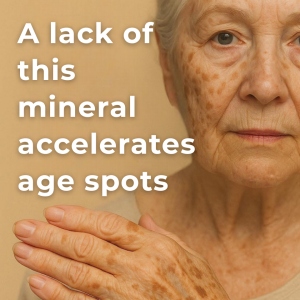
When summer nights turn sweltering and sleep becomes a struggle, your first instinct might be to jump into a cold shower to cool down. But despite how tempting it sounds, one sleep expert says it could actually keep you awake.
Trying to get comfortable in the heat can feel nearly impossible. Fans might blow air around, but if your body temperature stays high, falling asleep can still be a challenge.
While a cold shower seems like the logical fix, experts suggest it may do more harm than good when it comes to winding down.

Why Cold Showers Could Keep You Up
Ashley Hainsworth, a bed furnishings expert from Bed Kingdom in the UK, warns that a cold or even lukewarm shower might be too stimulating right before bed.
“If you’re already feeling cool and refreshed when getting into bed, it’ll be easier to fall asleep,” she explained. “A cool or lukewarm shower may seem like the obvious choice, but they can be stimulating and may keep you energised for longer, preventing a good sleep.”
Rather than helping you relax, the cold water might boost your alertness—exactly the opposite of what you need before bed.
Cold Showers Are Great—But Not at Night
Dr. Shereene Idriss Shokeen, founder of Ocean Skin & Vein Institute in California, spoke about the benefits of cold showers on the HuffPost podcast Am I Doing It Wrong?
She praised cold showers for their overall health perks: “A cold shower not only invigorates you more, it helps with hair follicles, it helps with hair growth, it helps with skin rejuvenation, with blood vessel dilation – it’s awesome for you.”
But while those benefits are real, they make cold showers ideal for morning use—not bedtime.

Why a Warm Shower (or Bath) Works Better
In contrast, warm or hot showers can actually help your body prepare for rest. As Ashley explained, these raise your core temperature slightly, which then triggers your body to release heat—especially through your hands and feet. This natural cooling effect helps lower your core temperature, a key part of getting good sleep.
Ashley also recommended taking a warm bath instead of a shower. Not only does it clean off the day’s sweat and allergens, but it can also provide the calming relaxation your body needs after a long, hot day.

Other Cool-Down Tricks for Better Sleep
If a warm shower isn’t your style, there are several other ways to beat the heat before bed:
- Wear chilled socks: Ashley suggests putting socks in the fridge a few hours before bed. “If you feel hot throughout the day, putting your socks in the fridge and wearing them while you sleep may help cool you down – especially if you’re someone who is already used to the sensation of wearing socks in bed.”
- Choose breathable sleepwear: Ditch tight or synthetic fabrics like nylon or polyester. Instead, go for loose, natural materials like cotton that allow your skin to breathe.
- Cool your pillowcase: Try sealing your pillowcase in a bag and placing it in the freezer for 30 minutes before bed. You’ll be surprised how soothing it feels against your skin.
- Stay hydrated: Drinking plenty of water during the day can help your body manage its internal temperature and avoid dehydration from overnight sweating.
- Cleanse off allergens: If you suffer from hay fever, a quick rinse before bed—either in the shower or bath—can help wash away pollen, leading to a more peaceful sleep.

Final Word: Skip the Cold Shower
Despite popular belief, a cold shower right before bed isn’t the best way to cool down. Instead, opt for warmer methods that help your body naturally regulate temperature and prepare for rest. With a few smart bedtime habits, you can stay cool and still get the deep, restful sleep you need—no icy blast required.




